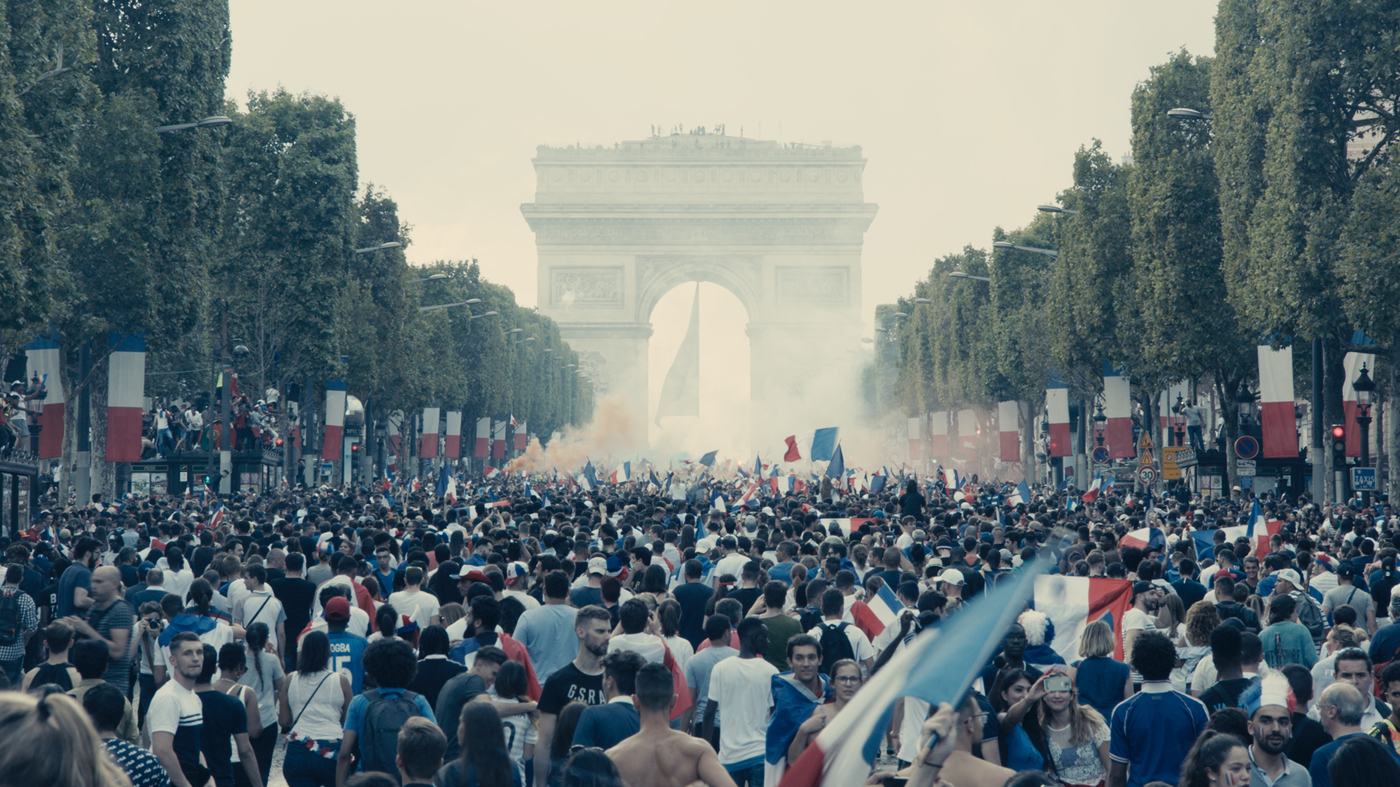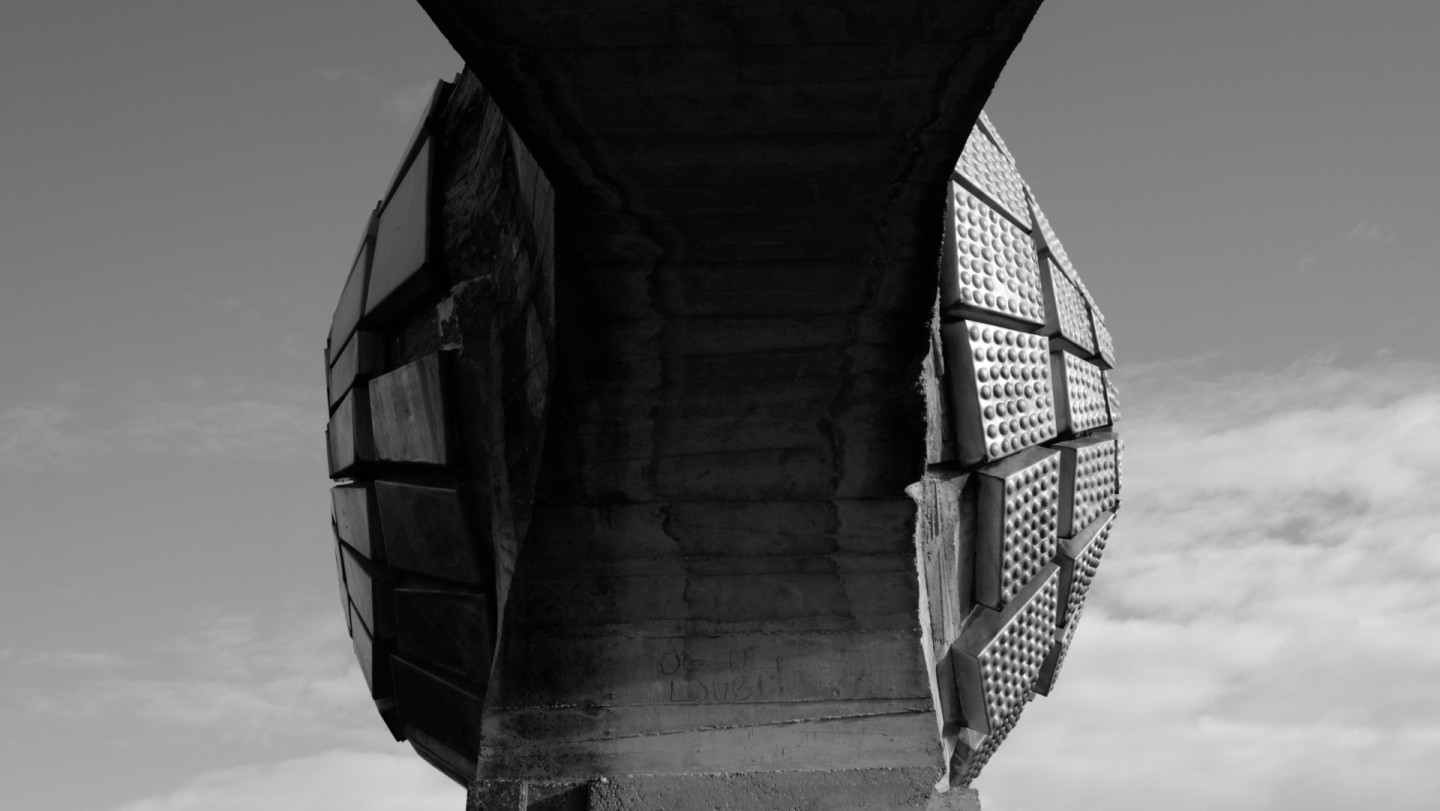Your handy one-stop-shop for cinephile news, articles, and videos from the week that was.
News Roundup

• The Berlinale, which wrapped up this past Sunday, announced the winners for this year’s festival, and VIFF regulars Hong Sang-soo, Christian Petzold, and Matias Piñeiro are some of the directors behind the prize-winning films. You’ll find a collection of highlights from this year’s Berlinale in the section below.
• Three days after winning the Berlinale’s Golden Bear for There Is No Evil, Iranian director Mohammad Rasoulof received a text message summoning him to serve a one-year jail sentence for his public criticisms of the regime. According to Variety, “Rasoulof was not allowed by Iranian authorities to attend Berlin. The director’s daughter, Baran Rasoulof, who stars in There is No Evil, on Saturday accepted the fest’s top prize on her father’s behalf.”
• France’s César Awards announced their annual slate of winners, with Ladj Ly’s Les Misérables taking home Best Film and Roman Polanski claiming Best Director for An Officer and a Spy. Coming after months of discussion about sexual harassment and abuse in the French film industry, the latter award caused numerous walkouts and even protests on the streets of Paris.
Reading Roundup
• “Prior to the recent downturn caused by the coronavirus, it was predicted that China would surpass the United States this year to become the biggest film market in the world. As US studios try to solicit Chinese audiences—and China tries to build the global cachet of its own film industry—questions of political compromise abound.” For The Nation, Phoebe Chen offers extremely well-informed analysis of Hollywood and China’s mutually beneficial, though increasingly alarming relationship.
• “There’s a lot of filming that happens around the Downtown East Side and it’s gross: the extraction from the TV sets coming in and then the influx of law enforcement to an area because they’re filming there.” Nlaka’pamux filmmaker Jade Baxter speaks to Jessica Johns about her experience working on the set of The Body Remembers When the World Broke Open, colonial structures in the film industry, and the possibility (or potential impossibility) of “decolonizing” cinema.
• Film Comment has released their latest issue, which features an interview with Kelly Reichardt (whose First Cow opens in Vancouver theatres on March 13), a discussion with Kleber Mendonça Filho and Juliano Dornelles (whose Bacurau will play Vancity starting on April 3), and an essay by Michael Koresky about the state of cinema at the beginning of this new decade.
• Known for such grimy works as Bone Tomahawk, Brawl in Cellblock 99, and Dragged Across Concrete, S. Craig Zahler has since dabbled in the narrative podcast format—or what Brendan Byrne calls “elevated table reading.” For Filmmaker Magazine, Byrne discusses the podcast The Narrow Caves while poking fun at Zahler’s more indulgent tendencies.
• And while we’re waiting for our very own dispatch from this year’s Berlinale, check out a roundup of coverage from the festival below:
Days
Taiwenese director Tsai Ming-liang makes his return to narrative filmmaking with Days, a story of two listless men whose paths eventually cross. At Sight & Sound, Giovanni Marchini Camia says of the film:
“In its deliberate pacing and rigorous focus, Tsai’s deeply compassionate portrait generates the most acute investment in his characters. After the ecstasy of their union, the apprehension about their inevitable parting is overwhelming, though Tsai is uncharacteristically gentle in the comedown.”
The Woman Who Ran
The exceptionally prolific Korean filmmaker Hong Sang-soo won the Silver Bear for Best Director for The Woman Who Ran, which follows a woman who disappears from her family and imagines a life free of the constraints of domesticity. At MUBI Notebook, Daniel Kasman writes:
“Stepping out of her marriage into the bubbles of other lives, she casually surveys the realm of a divorcee, a single thirty-something, and the woman who married Gamhee’s high school boyfriend. Across these episodes, each typically lackadaisical and wry in the manner well-known of the filmmaker, she discovers alternate paths she could have taken, other women she could be…The film, as light and off-hand as it frequently seems…has a pensive aura. It proposes a world with no dead ends, but certainly three possibilities of melancholy.”
Last and First Men
Before passing away in 2018, Arrival and Blade Runner 2049 composer Jóhann Jóhannsson made this adaptation of Olaf Stapledon’s groundbreaking 1930 novel “Last And First Men: A Story of the Near and Far Future.” At The Playlist, Jack King writes:
“That this is Jóhannsson’s solemn debut, released two years after his untimely death, is unavoidable to recognize. If nothing else, the ethereal sensibility of Last And First Men serves to remind us of this at every juncture. This will be Jóhannsson’s only film, and he is not here to see it released. But does that really matter, when everything is finite? As Last And First Men hauntingly considers, vis-a-vis the extinction of an imagined race, existence—of art, of sentient beings, of the cosmos—always ends. Even for the ‘last men’ of Stapledon’s narrative, who have successfully defeated natural death, and can now only die from suicide, murder—or, as it comes to be seen, a mass extinction event.”
Malmkrog
Romanian New Wave director Cristi Puiu earned a Special Mention in the newly launched Encounters section for Malmkrog, which follows a 200-minute philosophical discussion between European aristocrats at the turn of the 20th century. At Film Comment, Jordan Cronk writes:
“As in his masterful 2016 feature Sieranevada, Puiu stages the drama as a kind of rigorously choreographed domestic dance between the performers and cinematographer Tudor Panduru’s impressively mobile camera, with volleys of dialogue (spoken primarily in French) braiding the loose narrative into a stream of near-continuous debates…As the verbosity piles up, Puiu slyly upends the high-minded philosophizing with a handful of subtly self-effacing touches (including a rhetorical reference to all the grandstanding as a “theoretical exercise”) and at least one sudden (and unexpectedly violent) breach to the otherwise stately proceedings. Locating the middle ground between Luis Buñuel’s satirical view of the upper class and Manoel de Oliveira’s radically modernist revisions of period literature, Puiu has emerged with one of recent cinema’s most formally daring and intellectually provocative new works.”
Undine
Undine, the latest from Christian Petzold (Phoenix, Transit), tells a version of the eponymous fairy tale in the context of modern-day Berlin. At Criterion Daily, David Hudson describes the film as:
“[N]ever less than enthralling. Petzold stages and shoots a scene as simple as a couple walking through a city or a sequence as complexly choreographed as the one that eventually positions a man and a woman side by side, facing each other, on the floor of a café as an aquarium explodes all over them with breathtaking precision. Conversations I’ve had over the years with critics, German and non-German alike, have proven that first impressions of a new Petzold feature can be remarkably similar. Yes, Jerichow (2008) is unquestionably well-made, but it’s no Yella. Phoenix (2014) is certainly solid, but it’s no Barbara (2012). And then you live with these new films for a while, their images and sequences reemerging in the mind over and again, and the realization sets in that, yes, each new addition to the oeuvre is as remarkable as the films that preceded it. I suspect that Undine will soon be following the same trajectory.”
There Is No Evil
Mohammad Rasoulof won the Golden Bear for There Is No Evil, which tells four different standalone stories that all revolve around the death penalty in contemporary Iran. At Slant Magazine, Diego Semerene says:
“In fact, for Rasoulof, evil seems to be the most significant organizing force of daily life—the evil of past actions, present decisions, and atemporal structures—in a culture such as Iran’s that accepts murder as a legitimate form of punishment. There Is No Evil, then, doesn’t try to facetiously dispel the statement that its title makes by asking whether or not evil exists. It ponders, instead, how citizen’s position themselves in relationship to the inevitable evil that runs through their country’s core, architecting its every corner and generations of people.”
Viewing/Listening Roundup
• Damien Chazelle’s latest project is The Eddy, a mini-series he has directed for Netflix. The trailer for the series is below, and the first episode will come out on May 8.
• Jóhann Jóhannsson’s first and sadly last film Last and First Men (see above) now has a trailer, featuring all of the eerie synth tones one would expect of the composer.
Miscellaneous
